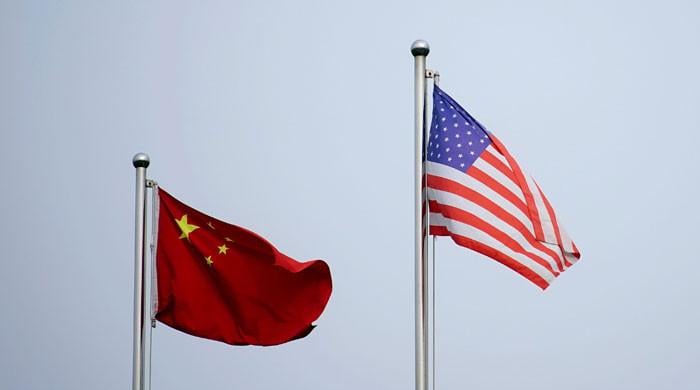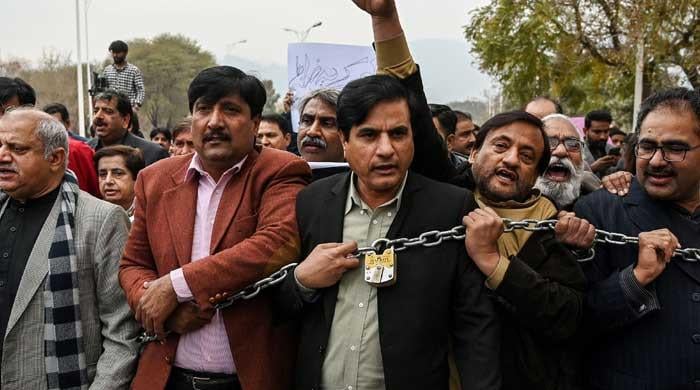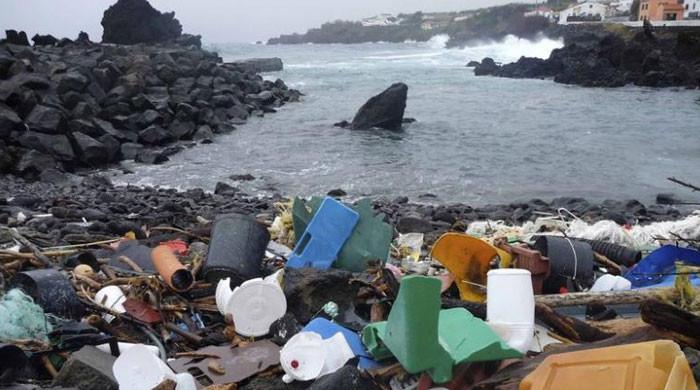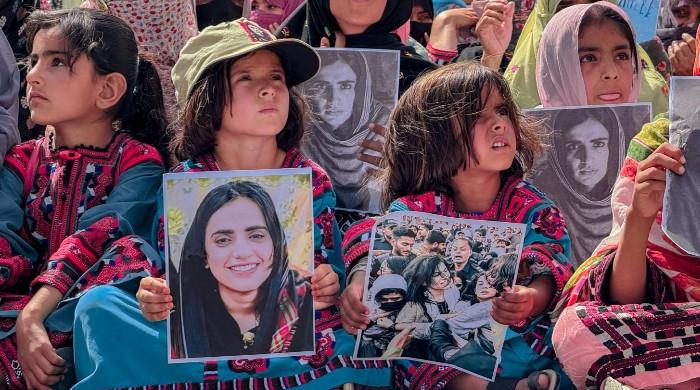An ethics of connection
Coronavirus has taken away the companionship of others and necessary human experiences
May 04, 2020

“Human beings need three basic things in order to be content: they need to feel competent at what they do; they need to feel authentic in their lives; and they need to feel connected to others.” So concluded American author Sebastian Junger, in his book, “Tribe: On Homecoming and Belonging.”
Junger, a war journalist who witnessed intense and bloody fighting in Afghanistan, wrote that men in large groups, such as tribes of old or army platoons, fostered a spirit of brotherhood and co-operation, with a willingness to die for the other at a moment’s notice. A tribe furthered the idea of the collectiveness and egalitarianism, as any acts of wanton selfishness by a single individual would endanger the entire group.
Junger argues that as modern society evolved, the loss of tribalism and the rise of individual autonomy led to alienation and depression. As part of tribes, our ancestors needed to co-operate with each other to survive.
For modern humans, such connections, particularly in the digital age, are tenuous and superficial as we live in societies that favour individualism over the collective. This is why, Junger offers, that in times of disasters or crisis, we feel invigorated to do something meaningful, as it offers an escape from the drudgery of everyday existence.
Suicide rates and mental health issues recorded a drop after 9/11 in the US or the Second World War Blitz in the UK because people felt connected to the suffering of others.
Also read: Burj Khalifa to light up with coronavirus donations
Pakistan is no exception. In our varied trials and tribulations over the years, from terrorism to floods to earthquakes and other traumas, our people, irrespective of economic status or faith, open their hearts and purse strings to help. We are described as resilient because we are acutely aware of sorrow as a shared experience.
But COVID-19 is different.
Unlike normal disasters, whose effects are linear and allow for an organised response, our best offensive against the coronavirus is to stay at home. Unless we are part of the medical community or essential service providers, our greatest contribution towards stemming the spread of the pandemic is to practice social distancing. This is alien to our innate selves.
The coronavirus has taken away the companionship of others; necessary human experiences.
It is a truism that leadership shines in a crisis. Germany, New Zealand and Denmark are countries who have been decisive in flattening the curve. It is no coincidence that their leaders are women who have exhibited transparency and calmness. Feminist scholars, have long since argued that women demonstrably make better leaders because they favour connection as opposed to autonomy; the latter being a masculine construct.
It is this ethics of care that allows women to be more empathetic and dialed in to the experiences of others. It will not be remiss to mention that New Zealand and Germany are developed countries and comparisons with the third world may be disingenuous, yet for a like to like comparison, the United Kingdom and initially, the USA’s response to the coronavirus, have been deeply ineffectual.
Also read: Coronavirus pandemic to further worsen Pakistan’s human rights record: HRCP
The Pakistan Tehreek-e-Insaf (PTI) government has accomplished some good things in this pandemic. It has mobilised the Benazir Income Support Program/Ehsaas programme to allow emergency relief to the economically impoverished. It has recruited out of work labourers in the PTI Billion Tree Program, which is a timely and out of the box move. It has the unenviable task of balancing economic interests versus losing precious lives to the disease; a difficult moral conundrum at the worst of times.
What it has got terribly wrong is that it has still not jettisoned its traditional brand of confrontational and egocentric politics.
The prime minister and his cabinet has launched into an infantile skirmish with the Sindh government. Instead of setting the tone for co-operation and coordination, the PTI government continues to play the enforcer, with threats (that is all they can be, considering it doesn’t have the numbers) to roll back the 18th amendment.
It has also sought to challenge an ordinance promulgated by the Sindh government for COVID-19 relief, on the premise that Sindh has encroached constitutional fields, such as electricity payments, which is the federal government’s domain.
The more things change, the more they remain the same.
These are not normal times. A beef with the Sindh government over medical resource allocation, personal protection equipment (PPE) and lockdowns should not metastasize into political point scoring. Instead, the federal government can show true leadership and requisition a meeting of the Council of Common Interests (CCI).
Also read: Economic impact of coronavirus on Pakistan
The CCI is a constitutional forum that was created to referee co-ordination between the Centre and the provinces. After all, under article 154 of the Constitution it is obligated to call this meeting every three months, something that this government and its predecessors have never taken seriously. Indeed, there are question marks on why a National Coordination Committee on the coronavirus, a non-statutory forum was created in the first place, in the presence of the CCI.
The PTI government can take the lead in other ways; legislate to provide a framework for the CCI, which is currently sitting dormant and toothless. It can operate in a spirit of co-operation rather than belligerence. Calls for litigation or reversal of the 18th amendment at this stage are intuitively distracting and unnecessary.
There are lives that need to be saved; political point scoring can live to fight another day.
On an individual level, those of us privileged not to experience food insecurity or who can still get by despite experiencing a slowdown in our professional lives, also crave connection and authenticity. It would not be remiss to mention that many service providers are sharing their skills online, entirely free. From scholars creating podcasts for students, bakers giving away their treasured recipes, make-up artists generously sharing tips and personal trainers gifting free workouts, some people are going beyond the traditional definition of charity. Ivy League universities are making certain courses free for everyone. Knowledge, in all its varied and wonderful forms is being accessible, as a consequence of the pandemic with self-interest and profit-making briefly relegated to the background.
Also read: PM Imran recommends youth read ‘Lost Islamic History’ amid coronavirus lockdown
But people just don’t become altruistic just like that. So many work and pursue a skill because it gives our life some meaning, outside of our monetary interests. Johan Harri, a celebrated author of two books “Chasing the Scream” and “Lost Connections” which explore themes of depression and the war against drugs uttered the iconic line; “The opposite of addiction is not sobriety, the opposite of addiction is connection.”
Human beings crave love, connection and bonding. When meaningful connection is missing from our lives, sometimes addiction steps in to fill that void. It may be an addiction that is non-drug related, to one’s work, pursuits or anything that might make our life meaningful.
During self-isolation, you might have felt a penetrating need to reconnect with family or friends, even those you have lost touch with. It may be equally true that certain friends that haven’t spoken to you in years dropped you a text or called to know if you were ok. This is not a coincidence.
COVID-19 has slowed the perception of time and space by eliminating everyday distractions and created a stillness, which has somehow forced our minds to focus on what is most meaningful; our connections.
Also read: Pakistan pushed towards telehealth as coronavirus overcrowds hospitals
Thus, strive to be generous during the pandemic, with your presence, your wealth and your time. If you have a skill disseminate it widely. Write that article, record that podcast, review that book, share your wisdom, because someone, somewhere will deeply benefit from it. Above all, check on your loved ones, (and not so loved ones) with reckless frequency. If you don’t re-establish that connection now at this time, when will you really?
On human connection, I will leave you with a quote by the great stoic sage, Marcus Aurelius who declares poignantly in “Meditations”;
“My relationship to them? That we came into the world for the sake of one other.”
Ali is a barrister in Lahore. He tweets at @RezaAli1980











